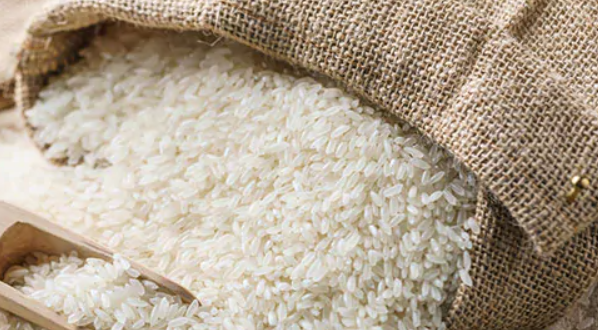DAINIK NATION BUREAU :In a move aimed at safeguarding the nation’s food security, the Indian government has recently imposed a ban on the export of non-basmati white rice. This decision comes amidst growing concerns over global food crises and a need to ensure an adequate supply of essential commodities for the country’s population. The ban, though posing challenges for rice exporters, is a significant step to ensure food availability and affordability for the Indian populace. This article explores the reasons behind the government’s decision and its potential impact on the agricultural sector and international trade.
Rising Global Food Crisis :
In recent years, the world has witnessed an increase in global food crises, characterized by soaring food prices, scarcity, and disruptions in supply chains. India, being one of the major rice-producing countries, has an important role to play in stabilizing the food market. The ban on non-basmati white rice exports is a strategic measure to bolster domestic reserves and ensure adequate supply for its own population.
Ensuring Food Security :
Food security is a top priority for any nation, and India, with a population of over 1.3 billion, faces significant challenges in this regard. By restricting the export of non-basmati white rice, the government aims to ensure that there is a sufficient buffer stock to meet the demands of its citizens. This move can help protect vulnerable populations from potential price hikes and food shortages during times of crisis.
Boosting Agricultural Sustainability :
By prioritizing domestic consumption, the government seeks to encourage farmers to continue cultivating rice and invest in sustainable agricultural practices. With a stable and reliable market within the country, farmers are likely to find more motivation to improve productivity and reduce wastage. The ban could serve as an opportunity for Indian agriculture to become more self-sufficient and environmentally friendly.
Impact on Rice Exporters :
The ban on non-basmati white rice exports will undoubtedly have an impact on rice exporters who heavily relied on foreign markets. These exporters will now need to shift their focus to domestic distribution or explore other export opportunities for different agricultural products. However, the government’s decision is a proactive approach to protect the interests of its citizens, especially in times of uncertainty.
Opportunities for Basmati Rice Exports :
It’s important to note that the ban applies specifically to non-basmati white rice. Basmati rice, which holds a unique position in the international market due to its distinct aroma and taste, remains unaffected by this restriction. With a growing demand for basmati rice globally, Indian exporters can still capitalize on this lucrative market and continue to contribute to the country’s economy.
The ban on non-basmati white rice exports in India is a significant step taken by the government to prioritize food security and ensure a stable domestic market amidst the global food crisis. While it may pose challenges for rice exporters, it also presents an opportunity for India to enhance agricultural sustainability and self-sufficiency. By protecting its own food reserves, India aims to shield its citizens from the impact of rising food prices and shortages, safeguarding the overall welfare of the nation. As the world grapples with food insecurity, India’s decision sets an example of proactive measures to tackle the crisis at a national level.
 Dainik Nation News Portal
Dainik Nation News Portal

